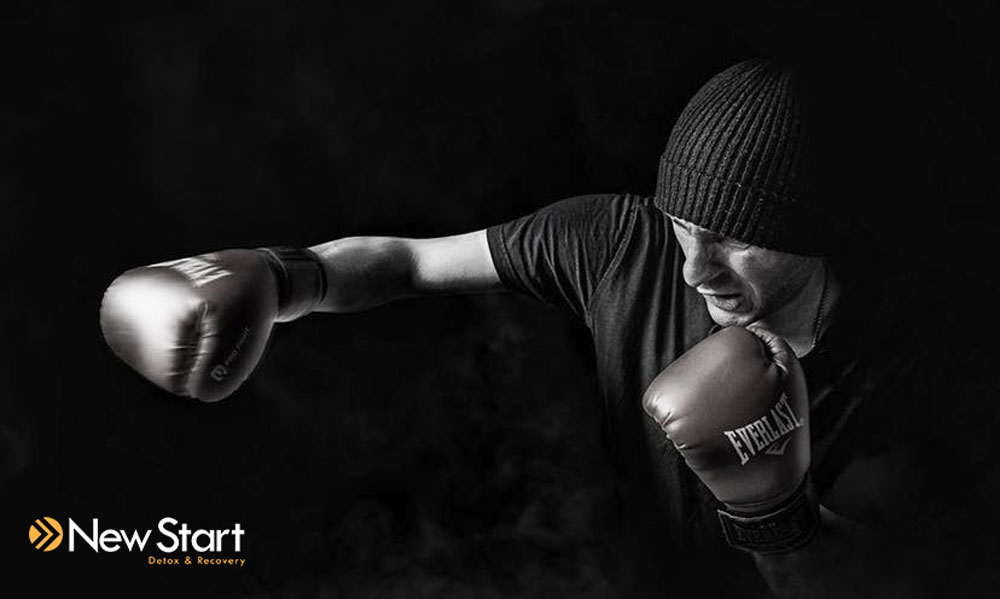Six grown men who were complete strangers to each other are living together for a month, give or take. They’re uncomfortable, homesick, and fresh in this newfound recovery. Are we really surprised when they start to nitpick and provoke each other? No. Obviously it’s not encouraged, but fights and feuds among addiction recovery inpatient clients are not at all uncommon. And one of the most common times these arguments happen is during group therapy. Everyone has his or her own opinions, beliefs, and stories, which will come out during group therapy. So it’s only natural that people clash sometimes and group therapy arguments pop off.

Blame it on testosterone, conflicting personalities, or “he’s just not a good guy, man.” The important thing is not why these arguments come up but rather how you go about dealing with them.
Group Therapy Benefits
So, before we get into our pacifist toolbox, we should probably talk about why you’re in these group therapy sessions in the first place. Recovery is most successful when it’s approached with multifaceted treatment. Medication alone, therapy alone, or quitting cold turkey won’t give you the benefits of a full, well-rounded treatment. New Start offers one-on-one treatment, individual case management, detox medications, and group therapy so that our clients stay happy and comfortable.
 Participating in a group gives you the opportunity to be supported and encouraged from all sides. Your group members are also going through recovery. Not only will you receive support from them, but you’ll also be able to listen to and cheer on others, which will help them in their recovery as well. This whole interchange of support benefits everyone involved.
Participating in a group gives you the opportunity to be supported and encouraged from all sides. Your group members are also going through recovery. Not only will you receive support from them, but you’ll also be able to listen to and cheer on others, which will help them in their recovery as well. This whole interchange of support benefits everyone involved.
The simple camaraderie and fellowship that group therapy creates is another huge benefit. Sometimes people might not want to openly share or explicitly participate. That’s completely okay. No one can force you to be a full-blown, guns blazing group therapy extrovert. But just being a part of a group with people physically at your side and wordlessly sharing your struggle will inherently boost your mood and confidence.
Tools for Handling Group Therapy Arguments
Group therapy is great for recovery, but not everything can be peaches and daisies 24/7. Sometimes groups get heated and arguments might arise. Two people might butt heads or someone might antagonize the whole group. Fortunately, there are a few things you can do if these group therapy arguments come up.
If you are involved in the argument:
-
1. Don’t take it personally
If someone is trying to start an argument with you in recovery, more often than not it has more to do with them than it does with you. Residential treatment gets hard for everyone at times, especially if you’re new to recovery. He may just need an outlet for his frustrations. While it’s never okay for someone to target another person for their own frustrations, try to be mindful of the other stressors that might be going on in the guy’s life and don’t take it personally.
-
2. Keep your cool
Arguments can trigger past feelings of resentment and anger, both of which were likely very present during your addiction. Participating in the aggression can put your mind back into a dangerous place. The last thing you want is to have a minor argument push you back into addiction.
-
3. Don’t engage
If someone is trying to pull you into an argument, try not to give them any attention. Even telling someone to back off is still giving him attention. By not engaging, you’ll send the message that you’re not interested in the fight. But if for some reason the aggressor doesn’t pick up on that message, try talking to the group leader or your case manager. They’ll be able to facilitate a safer and more passive environment if they know what’s going on.
If you are a witness to the argument:
-
1. Again, don’t engage
That may seem like common sense to a lot of people. But it’s actually very natural to want to stick up for someone or share your opinion when you see something wrong. Remember that you’re here for YOUR own recovery and no one else’s. If group therapy arguments aren’t directed at you, then it’s best to keep out of them.
-
2. Step away from the group/argument
Step outside and get some fresh air or just move away from the feud. With testosterone levels building up, getting away from that energy is probably the best course of action for the present moment.
If you are the instigator:
-
1. Put the argument into perspective
Ask yourself questions like “Is it worth it to call this guy out?” or “Does this problem directly affect my recovery?” More often than not, the answer to these questions will be no. Sometimes it just takes a second to sit back and think about the situation before you realize its worth. The only things you should be concerned with are those that directly affect your recovery.
-
2. Address real concerns
Talk to someone on the support staff team if someone else is really taking away from your experience. In these cases, it won’t help you to stay quiet. Your stay during inpatient treatment or your time in an outpatient group should make you feel safe and comfortable. Support staff will be happy to help make things right for you if someone is really bothering you.
-
3. Find healthy alternatives
A lot of the time when you feel irritated, you just need to let off a little bit of steam. There are healthy and unhealthy ways to do that. It’s unhealthy to verbally attack someone else because he angered you. It’s healthier to write down your feelings in a recovery journal. It’s unhealthy to speak over someone who has a different opinion than you. It’s healthier to (respectfully) share your opinion on the matter after he has stopped speaking. You get the picture.
So maybe someone “really isn’t a good guy, man.” But that’s not for you to decide. Your recovery is your recovery and his recovery is his recovery. Focusing on your own, individual journey will leave no room for you to even entertain group therapy arguments. But if you encounter one, these tools will keep you prepared.

